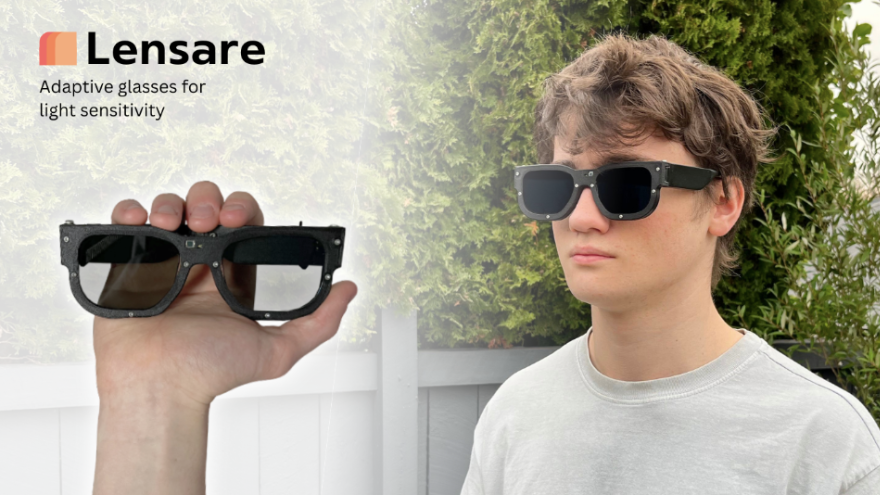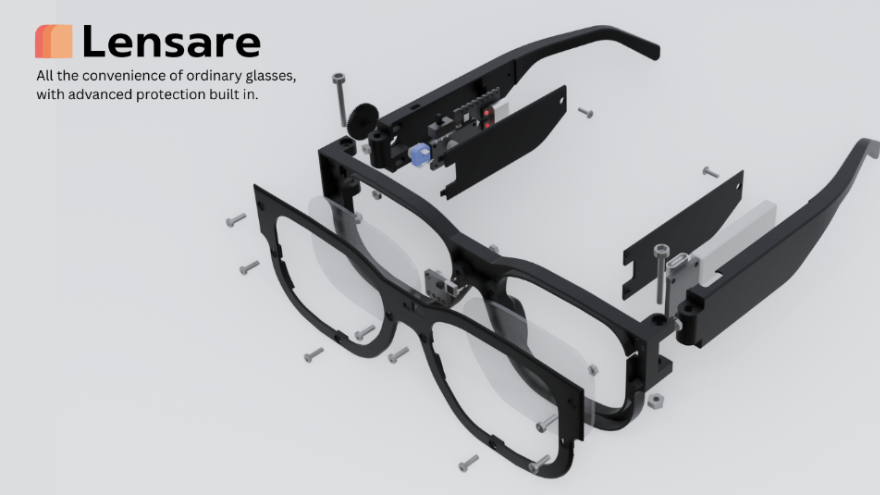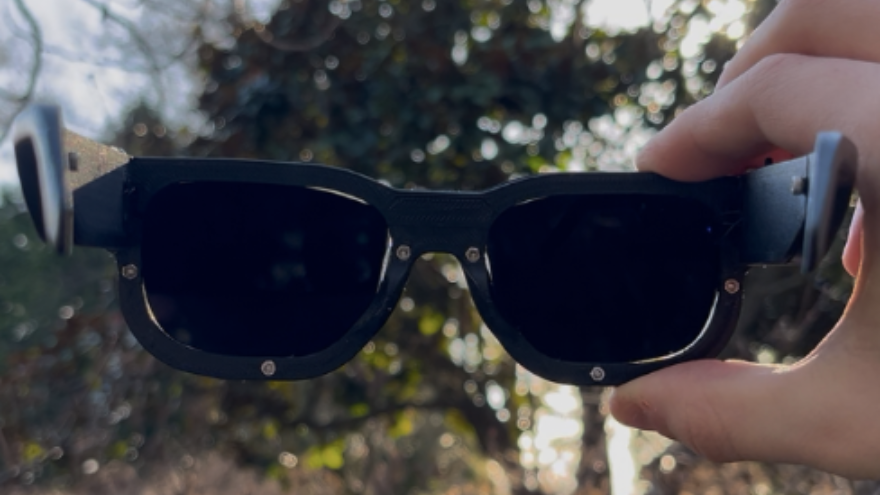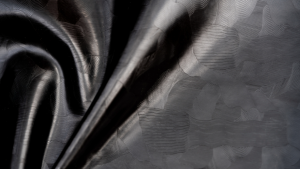Student product designer, Mark Campbell, has developed Lensare - a prototype pair of glasses that dynamically shield wearers from harmful light stimuli, offering hope to people living with photosensitive epilepsy or severe photophobia. A recent winner of the James Dyson National Award, Lensare incorporates smart LCD lenses that constantly monitor the visual field for problematic light patterns such as flickers, high contrast flashes, or rapid transitions. Upon detecting a potential trigger, the lenses darken in real time to filter harmful stimuli while allowing normal light when safe. The transition is designed to be imperceptibly smooth. The idea draws inspiration from auto-darkening welding masks adapted for neurology and everyday comfort.
The prototype is currently housed in a 3D-printed frame, but the vision is a sleek, inconspicuous wearable suitable for daily life. As the next stage of development, Campbell is working toward making it more robust, lightweight, and commercially viable.
Photosensitive epilepsy is rare but impactful. Visual flashes, flickers, and certain patterns can trigger seizures in susceptible individuals, with some estimates suggesting prevalence as high as 50 million people worldwide (WHO). Existing strategies include coloured lenses and filters that block specific wavebands; for instance, researchers at the University of Glasgow developed liquid crystal lenses that can block >98% of light in seizure-sensitive wavelengths. But these tend to be static solutions, not adaptive. Lensare’s dynamic approach means it adapts only when necessary, preserving visual clarity most of the time. That reduces the burden of always-worn filters and improves quality of life.
If successfully developed and scaled, Lensare could shift how society accommodates neurological diversity. It would allow people with light-triggered conditions to move more freely in environments like concerts, offices, classrooms, or urban environments.








